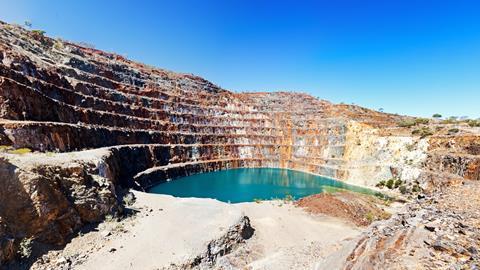Certain bacteria can also use the radioactive elements americium and curium instead of lanthanides for their metabolic processes. Scientists at Radboud University, among others, report these findings in the journal Angewandte Chemie.
Lanthanides, or rare earth metals, are essential not only for all kinds of electronics, but also for certain bacteria. These bacteria use lanthanides to carry out their metabolic processes, such as breaking down methanol, and are ubiquitous in the environment. Now it turns out that these earth metals are not as irreplaceable for bacteria as we thought. A team led by Lena Daumann (Ludwig Maximilian University, Munich) has shown that certain bacteria can also use similar actinides, namely americium and curium, instead of lanthanides, provided they have the same size and oxidation state. This is the first demonstration that organisms can use these radioactive elements for basic life processes. They published their results on 11 May in the journal Angewandte Chemie.
Co-factor
The idea came from Daumann, says co-author Huub op den Camp, professor emeritus of ecological microbiology at Radboud University. They started with a methylotrophic bacterium that uses lanthanides as co-factors for a methanol dehydrogenase, an enzyme that breaks down methanol. Americium and curium, both radioactive actinides, are chemically similar to the lanthanides. ’Could the bacteria use these elements as cofactors instead of the lanthanides?’ says Op den Camp.
It turned out that the bacteria could use americium and curium just like the lanthanides. But not with plutonium. ’Probably because it has a different oxidation state,’ explains Op den Camp. The finding has no natural consequences, as americium and curium do not occur in nature. ’So the organism can live on an element that does not occur in nature.’
Uranium mines
Op den Camp and his colleagues also investigated whether these bacteria could be used to extract lanthanides. ’Because they are so widely used in electronics and China has a reasonable monopoly on them.’ The researchers are now investigating whether they can recover metals from wastewater containing lanthanides or actinides. ’It would be nice if you could clean uranium mine water with these bacteria.’
Op den Camp himself is curious to see how the bacteria absorb the actinides. ’Our bacteria and the bacteria from Berkeley [one of the collaborating universities, red.] are completely different, but they do the same thing because they have the same enzyme. I still wonder how they get the radioactive elements into the cell.’
Helena Singer et al., Minor actinides can replace essential lanthanides in bacterial life, Angewandte Chemie (2023) (Open access)













Nog geen opmerkingen